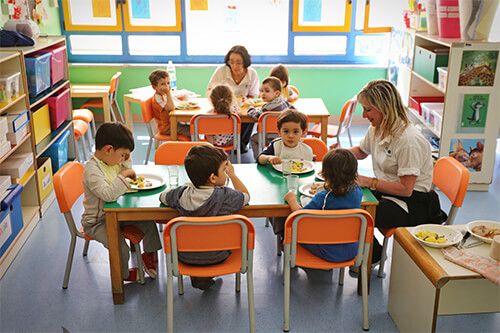Your ECE Journey
Why Get Certified

ECE Certificate and Education
When choosing a career in early childhood education, you will need to
- Complete an approved post-secondary education program and training or another approved certification process that is offered in your province/territory.
- Apply to obtain your ECE certificate or diploma in early childhood education
Graduates from an approved child care training program can work as an Early Childhood Educator once they apply to receive a certificate from the provincial or territorial government. You can find how to apply for certification on our child care certification page.
The Power of Higher Education: Getting Your ECE Certificate
Educated and certified ECEs are valued professionals who go above and beyond the day to day work tasks of “looking after children”. With their advanced education, they understand the developmental, psychological, cognitive, social and emotional stages of children’s development. And they know the impact they have on a child’s outcome through these early years. They skillfully harness the child’s play into curiosity for science, nature, and people. ECEs establish a child’s foundation for learning for life – not just the early years.

ECEs are compassionate and creative individuals, who see the world through a child’s eyes. They have an ability to be both a guide and a participant in the world of discovery, play and learning.
A Question of Quality
Education and certification in early learning and child care not only raises your professional competency to work with children, but more importantly launches your ECE career into providing quality care in quality programs. And you will make a meaningful difference for the better of children, families and society as a whole.
The Canadian Child Care Federation, along with the child care community and sector across Canada, advocates for quality in early learning and child care – certification is foundational to achieving that quality.

Choosing Your Educational Program in Early Learning and Child Care
Completing a quality post-secondary education program in early childhood education opens a variety of career opportunities such as preschool teacher, home or centre-based child care provider, after school or school age care worker, and program director to name a few. An ECE degree or diploma could also be a stepping stone to go on further in your education journey to study and practice in child psychology, art therapy for children, social services for children and families or social work.
The level of education and certification you get increases your salary earning potential as an ECE. Completion of a two, three, or four year college program in early childhood education or a bachelor’s degree in child development will take you to different levels of competency and determine higher salary ranges depending on the region you wish to work in Canada.
The length of the course or program you take will vary from each learning institution and each province’s regulations. Some programs allow you to earn your certificate in as little as six months; others take two years or more.
Online programs might be your best choice if you are already working or the institution is not in your home town or city. Check the institution and program you are interested in to see if it is offered online.
Provincial Jurisdiction Requirements For Your ECE Certificate
Professional certification and licensing requirements vary depending on the province or territory you wish to work in and also the professional level you want to work in (assistant, child care provider, program director, home child care provider . . .) Licensing by a provincial or territorial association for early childhood educators (ECE) is usually required.
You might need to get a professional licence from a regulatory authority or provincial/territorial child care association before you can start working. Licensing can be compulsory or voluntary, depending on the occupation and region.


Further Steps in your ECE Journey
Higher learning in ELCC
Beyond the basics, an extensive program at the Master’s level will launch you into the world of early childhood learning research that will inform pedagogy and how child care is practised. Your knowledge and research can influence how quality child care is valued, approached and practised in Canada and beyond. You will also open possibilities in advocating for quality child care and children’s rights.
Maintaining and Renewing Your ECE Certificate
Once you have become a certified ECE qualified to work as an early childhood educator or assistant in your province, you may need to renew your certification and/or take professional development courses to maintain your certification. Your provincial child care regulator will determine any requirements.
Professional Development courses and Lifelong Learning in Early Childhood Education.
Joining a provincial or regional child care association, council and association board.
- provincial child care associations
- provincial child care advocacy association
- national child care association or national child care advocacy group.








